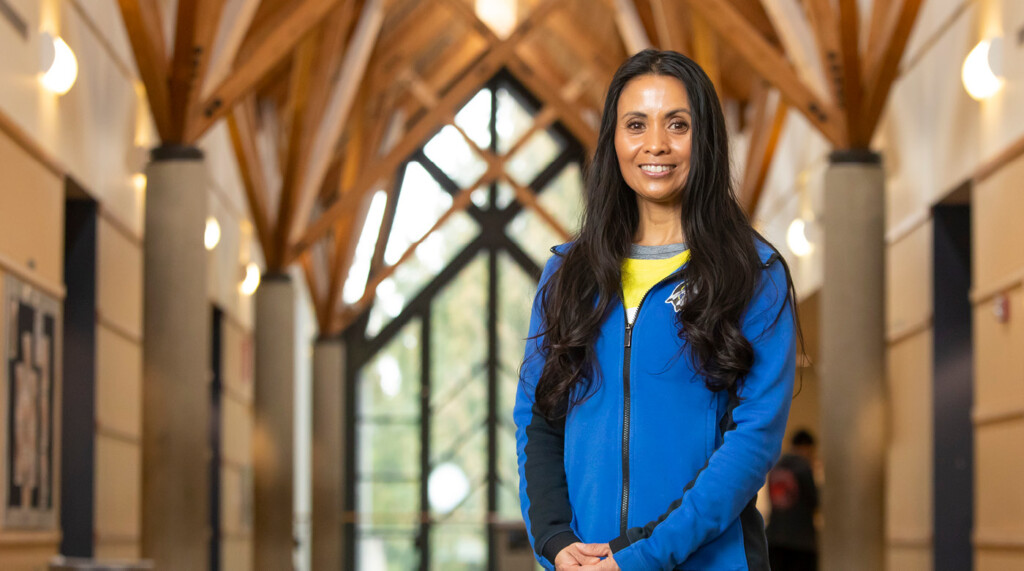Page 195 • (12,657 results in 0.024 seconds)
-
Concentration and Certificate Declaration Form (link) view page
-
, Multimedia and more. Instruction may take the form of Adult/Continuing Education classes on evenings and weekends, skills workshops, public forums, brown bag lunches and lecture series.
-
research will measure students’ sense of belonging and the impact of program resources over time. Not only will this funding allow us to provide significant scholarship support for low-income students in STEM, but it will also allow us to better integrate PLU resources and build new structures to support these students’ success.- Ann Auman Curricular engagement will include a transitions course, linked introductory courses and supplemental instruction. Students will learn resume writing, scientific
-
of topics. For more information and a calendar of workshops, visit http://community.plu.edu/its-instruction/ [top] Need More Help?Create a Help Desk Service Request. You’ll need an active PLU ePass to log in. Quick Links Activate Your ePass
-
interactive environment, guest speakers and flexible schedule – after all, aside from his job, Hopkins has two eight-month-old twins – one boy and one girl – keep his wife busy at their Tacoma, Wa home. “The curriculum is in real time,” he said. “As a manager, this program relates exactly to what I’m doing in the field. It helps me with my growth as a manager and my effectiveness.” His hobbies when he’s not working, traveling or finishing up his studies? Working at his church, skiing, and time with the
-
and Accommodations at OAA@plu.edu.Field ExperienceFall 2020 Field Experience Information Juniors: We will provide you with an applied practicum experience. EDUC 330 will meet on Mondays from 6-8 p.m. Dr. Weiss intends to offer this applied practicum experience in hybrid format and will communicate specific meeting dates prior to the start of the semester. As with all courses, you may opt for completely virtual instruction by emailing OAA@plu.edu. Seniors: Your fall field experience will reflect
-
. The core curriculum, complemented by a strong array of disciplinary and interdisciplinary programs, provides students with an academic experience that is both rigorous and flexible, creating a foundation for their lifelong vocations and career possibilities. A Culture of Service and Leadership At Pacific Lutheran University, we recognize that part of our vocational identity is grounded in our civic commitments and relationship with our community. This is not simply an interesting idea but a way of
-
Archival Resource: The General Education Council is responsible for finding ways through which to assess and describe how PLU students understand and apply (think about and embrace) the Integrative Learning Objectives as they are represented throughout the curriculum, particularly in the General Education experience. In Spring 2018, the faculty voted to create and implement a faculty standing committee charged with the oversight of the Core Curriculum (General Education). Taking the place of
-

and arranged for them to come on campus on certain days to receive specially-designed instruction,” recalls Helle, who graduated from PLU in December 1996 and later returned to earn her administrative credentials. Chief Leschi purchased screens, face masks and other tools to ensure everyone’s safety. The flexibility allowed students to receive one-on-one help in small groups for longer-than-usual periods of time. “When it came time to return to school in person, they already had the familiarity of
-
Department of EnglishTen Years of the Visiting Writer Series New Honor Society Enters Lutedome Appreciations: In Recognition of Our Retiring Colleagues Department of English Welcomes New Faculty Member Department of Languages & LiteraturesRe-envisioning the Language Resource Center Community Learning Through Endowed Lectures PLUTO and Language Instruction: Pedagogical InnovationsDepartment of ReligionHealing Vocations: Studying Religion and Healing at PLU Learning With Out Neighbors Lectures in
Do you have any feedback for us? If so, feel free to use our Feedback Form.


